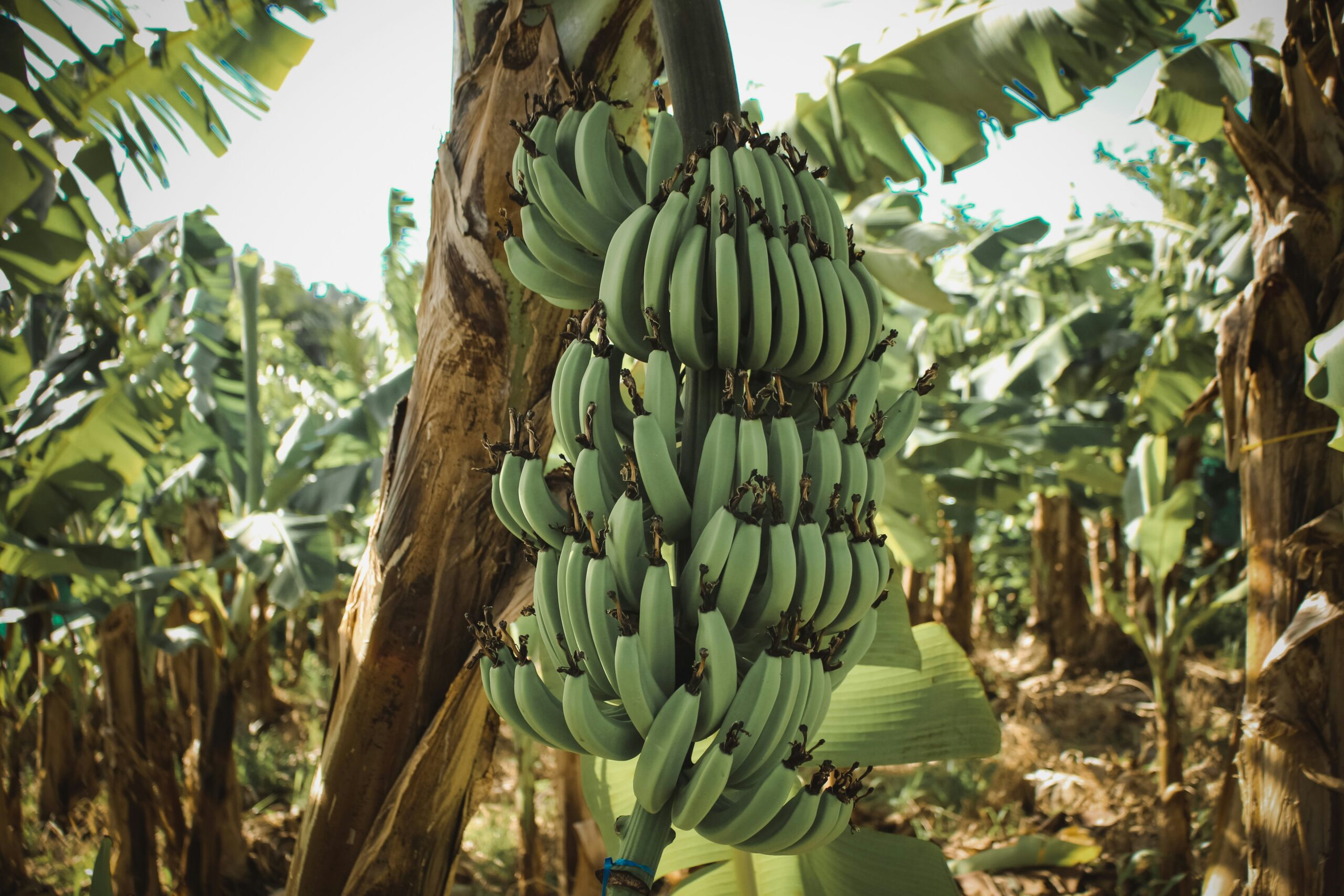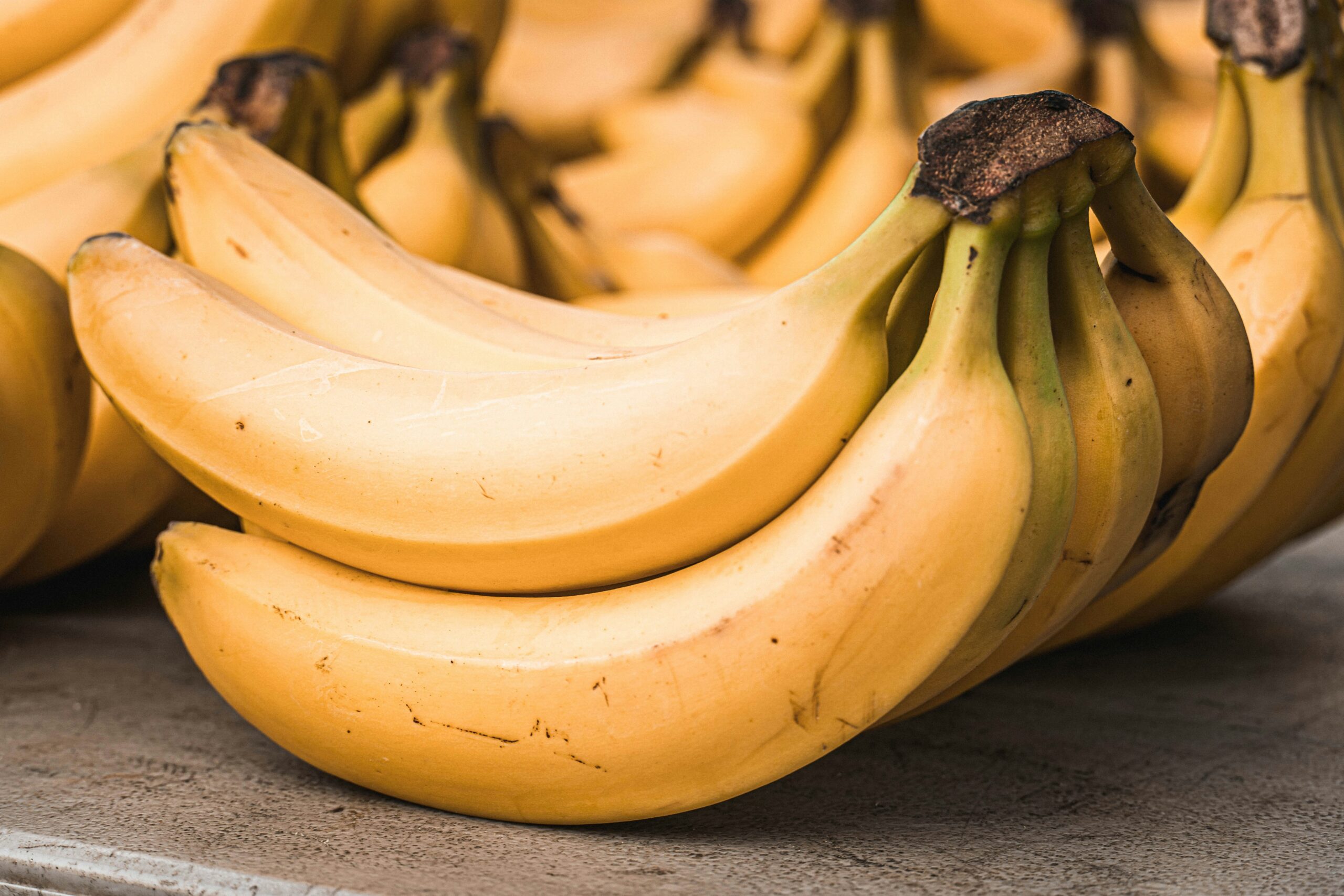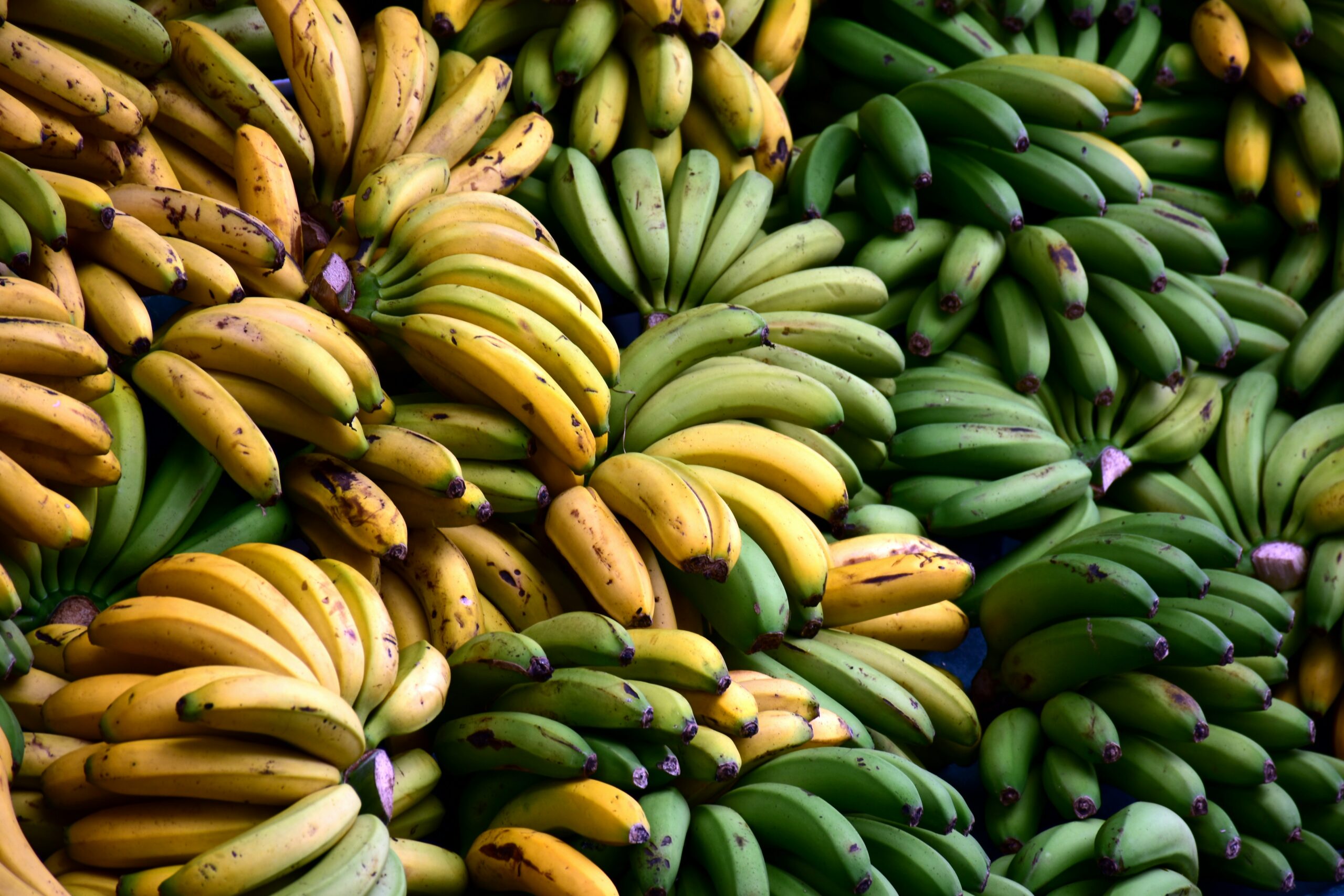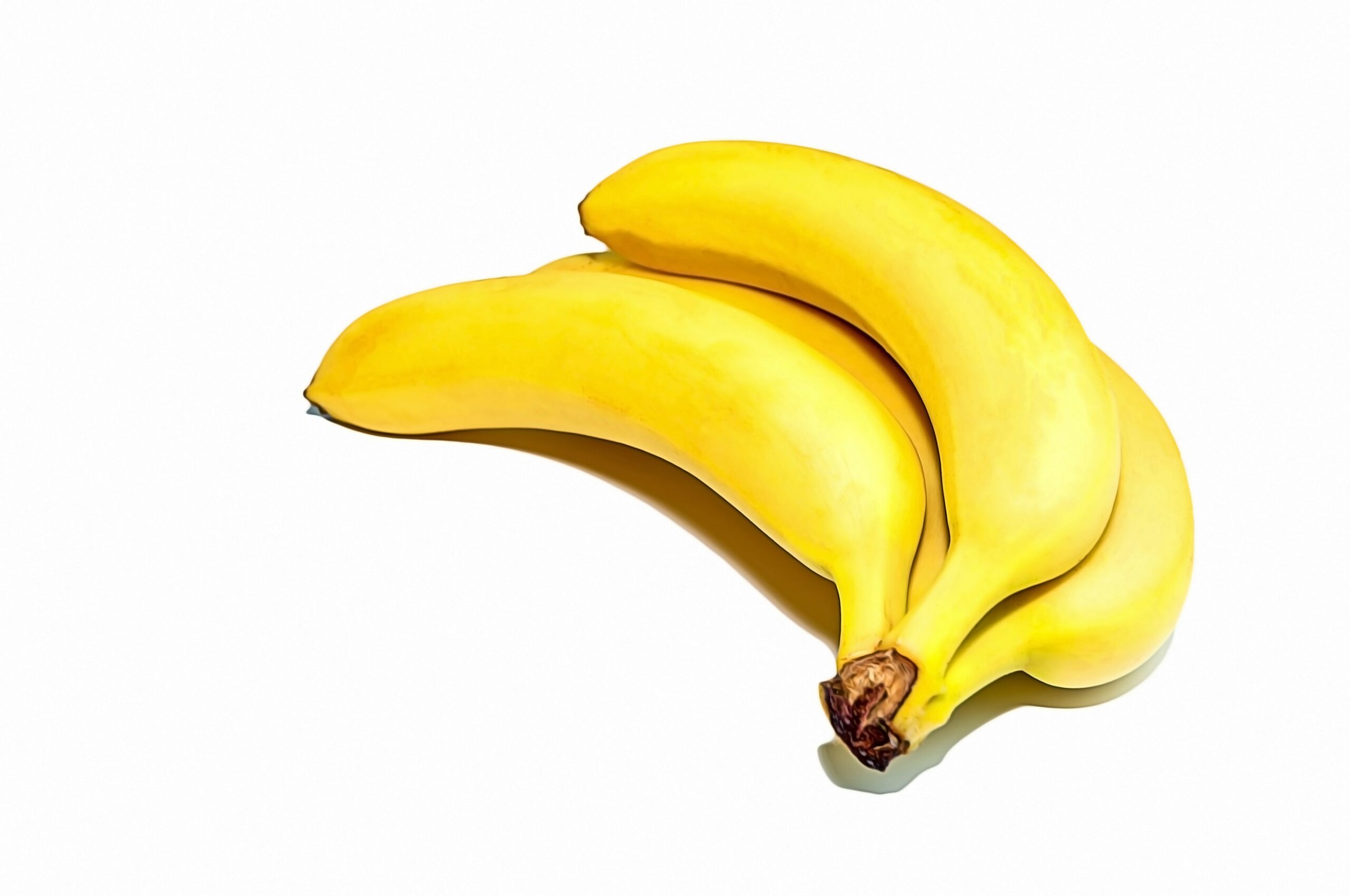Bananas are among the most widespread fruits. The consumption of this fruit increases across the globe. Bananas grow on banana trees in the tropical regions. They come from the Southeast Asian region and are one of the ancient fruits. With time, banana cultivation went to other continents. It gained vast popularity in the agriculture market.
Various types of bananas may vary in appearance, taste, and other properties. Bananas can generally be divided into dessert fruits and plantains. The most popular type of fruit is the Cavendish banana. It has a characteristic yellow skin and tastes sweet.

People eat them raw, but bananas' taste and soft texture make the fruit used in baking and preparing various meals and products. This fruit is also considered healthy, containing multiple bioactive compounds and other valuable nutrients. Bananas are believed to be highly beneficial for human health. They have already been used successfully to treat various diseases. As a result, consuming this fruit reduces the risk of many chronic disorders.
Nevertheless, bananas are rich in carbohydrates and are one of the most high-calorie fruits. So, should you add bananas to your menu? Check it out.
Bananas are the fruits of herbaceous plants in the genus Musa. The genus Musa is common throughout most tropical regions, and its species with edible fruit are of great economic importance. The fruit and all parts of the banana plant are beneficial medicines and have therapeutic effects. But people usually enjoy the health benefits of fruit by eating bananas. The most widespread use of fruits is generally raw.
Banana is a highly nutritious fruit, and in terms of many macronutrients, micronutrients, and phytonutrients, it is a significant source of nutrition for man. Bananas are highly beneficial fruits and have the medicinal properties mentioned below:

There are plenty of antioxidant-active chemicals in the banana. Thanks to this, even a tiny amount helps the body fight exposure to free radicals. Although the flesh of the fruit on the inside of the peel is rich in antioxidant chemicals, it has been observed that the peels are richer in antioxidants.
One of the best things about bananas' antioxidant properties is their protective nature against all diseases, from cancer to neurodegenerative diseases. For instance, one formulated test is sufficient for protection and reduces the already present oxidative stress. Depending on the type of banana, there might be some differences in the activity of antioxidants.
Different parts of the banana tree are used in natural medicine to help with other inflammatory conditions, such as bronchitis or various kinds of skin issues. Hypocrites have used banana fruit and leaves to treat burns and wounds, cooling them down when applied to the skin. Bananas are rich in a health-beneficial compound and are great anti-inflammatory agents.
Moreover, the fruit's high carbohydrate content also has a positive effect because macronutrients also reduce the number of inflammatory cytokines in the organism. The banana extract can also help reduce the response to inflammation. In other words, bananas can be part of an anti-inflammatory diet, which is helpful for different kinds of inflammation.
Banana is a well-known health food with anticancer properties, as it can defend against abnormal cell growth while improving immunity. Lately, researchers have found that banana extract may be helpful for cancer since it has a protective cytotoxic effect on some cancer cells; it can kill them or hinder their growth. In one experiment, bananas have shown therapeutic effects in treating breast cancer![]() .
.
Bananas are one of the most remarkable fruits of the human body. It also performs a protective function for the body against cardiovascular diseases. Since potassium is related to controlling normal blood pressure and the heart's function, it has an essential benefit of eating a banana; that is, consuming a banana leads to lower blood pressure and prevents stroke![]() . In general, the chemical compounds of the banana fruit act as natural hypertensive agents. Moreover, the carotenoids in bananas enhance the immune system and have a protective role in the heart and cardiovascular systems.
. In general, the chemical compounds of the banana fruit act as natural hypertensive agents. Moreover, the carotenoids in bananas enhance the immune system and have a protective role in the heart and cardiovascular systems.

Numerous studies have shown that bananas can also affect lipid profiles. Due to the flesh in the fruit, bananas reduce bad cholesterol. Phytochemicals may also influence this lowering of cholesterol in bananas, which helps minimize blood cholesterol levels and reduce their absorption in the intestines.
Bananas also contain indigestible fibers, such as cellulose, which are helpful for bowel function. These components normalize bowel activity for patients who experience problems with bowel movement, such as constipation![]() and diarrhea
and diarrhea![]() . Banana fruit affects colon function and water absorption processes. Bananas contain prebiotic chemicals, which indicate that the fruit positively affects the microflora of the intestines. As a result, the body absorbs nutrients from food better and is protected from harmful microorganisms.
. Banana fruit affects colon function and water absorption processes. Bananas contain prebiotic chemicals, which indicate that the fruit positively affects the microflora of the intestines. As a result, the body absorbs nutrients from food better and is protected from harmful microorganisms.
Banana fruit is sour and effectively protects against ulceration![]() and stomach damage. This is because it antacidizes the acid in the stomach. What's more, the chemical compounds in the fruit can boost the thickness of the gastric mucosal layer.
and stomach damage. This is because it antacidizes the acid in the stomach. What's more, the chemical compounds in the fruit can boost the thickness of the gastric mucosal layer.
Another use of banana fruit is to reduce acidity in the stomach, thus making it one of the best remedies for heartburn![]() . This is so because the fruit neutralizes acidity by inhibiting acid secretion. Various fruits should be avoided by patients with intestinal disorders so that they may not affect their digestive systems. Bananas are allowed for these patients, with the reason behind the process being that they cannot harm the patients.
. This is so because the fruit neutralizes acidity by inhibiting acid secretion. Various fruits should be avoided by patients with intestinal disorders so that they may not affect their digestive systems. Bananas are allowed for these patients, with the reason behind the process being that they cannot harm the patients.
Phytochemicals found in bananas may influence neuronal cells and forestall the neurotoxicity of these cells. Accordingly, regardless of the organic product, including bananas and more, it ensures nerve cells are protected against oxidative stress. The presence of these items in the diet forestalls the improvement of different neurodegenerative issues, such as Alzheimer's disease![]() .
.
Furthermore, as a carbohydrate-rich organic product, bananas provide the energy necessary for the cerebrum to work; therefore, they affect mood emphatically and improve memory. Bananas also contain various nutrients that the cerebrum needs to work appropriately.

Bananas in the diet could also benefit kidneys. Banana fruit enhances kidney performance by assisting in calcium excretion in the urine. As a result, the potassium in bananas lowers the risk of kidney stones. Eating patterns made up of whole foods such as fruits and vegetables will also safeguard against central kidney cancer. In this connection, the banana will most appropriately protect people against kidney disease.
Bananas are a good idea for those who do lots of exercise because this fruit contains a great number of simple carbohydrates like fructose, glucose, and other natural sugars, which, combined with fiber, cause a rapid energy increase. Besides, bananas' potassium affects proper muscle activity![]() and performance during exercise. Thus, if you move a lot, consider trying a banana as something useful for your diet.
and performance during exercise. Thus, if you move a lot, consider trying a banana as something useful for your diet.
Eating bananas has a positive effect on the body's immunity. Since the fruit contains many active compounds, micronutrients, and macronutrients, almost no ingredient is complete without valuable substances. Besides, the marriage of red blood cells and antibodies depends on these substances in sight. In addition, the banana complementarily supports fat metabolism and protects against infectious diseases, as it has an anti-inflammatory effect.
Iron is an element that is contained in bananas in high volumes. This fact makes banana fruit a perfect dietary treatment for people with problems. Additionally, promoting more hemoglobin in blood is the positive influence of such fruit. Moreover, the beneficial action to the digestive system is the better absorption of all minerals. Thus, people who suffer from anemia should eat bananas better.

Concerning the positive sides of the banana, the fruit is highly nutritious. First and foremost, the fruit contains many valuable elements, further dividing the banana's nutrients into micronutrients and macronutrients. In addition, the fruit contains many phytochemicals that can provide the banana with even more properties. Secondly, the product's calorie content is high, as 100 grams of the fruit contain 89 kcal![]() . In addition, the banana is mainly made of water, which is why the fruit's flesh is juice.
. In addition, the banana is mainly made of water, which is why the fruit's flesh is juice.
Bananas are fruits that are rich in carbohydrates. Throughout the development of the plant's corm, starch accumulates in the banana fruit or desserts and is subject to different processes. The starch is transformed into sugars such as sucrose![]() , glucose
, glucose![]() , and fructose
, and fructose![]() . These simple sugars significantly contribute to the high caloric content of fruit. The more ripe the banana fruit, the more sugar its fruit pulp or mesocarp contains. The amount of individual sugars changes depending on the degree of plant corm development.
. These simple sugars significantly contribute to the high caloric content of fruit. The more ripe the banana fruit, the more sugar its fruit pulp or mesocarp contains. The amount of individual sugars changes depending on the degree of plant corm development.
Bananas enhance physical performance for sports involving much endurance solely because of their sugar content. Bananas also have a low likelihood of causing muscle aches or lack of shape. Notably, bananas are also becoming more popular in athletes' diets. Banana fruit also contains a lot of fiber![]() . It may eliminate the well-known negative aspects of the intestines and improve the quality of digestive function as a source of aid. Unripe bananas also contain a lot of proteins, while fats are minimal.
. It may eliminate the well-known negative aspects of the intestines and improve the quality of digestive function as a source of aid. Unripe bananas also contain a lot of proteins, while fats are minimal.

Banana is a fruit that is rich in vitamins and minerals. The fruit contains large amounts of vitamin A, which people are often deficient in. The banana also provides B vitamins. Eating one banana makes it easier to maintain vitamin B6 levels. The banana fruit also provides vitamin C in the diet, but we can find more significant amounts in other fruits. The banana peel, which contains vitamin D, helps the body absorb calcium, among other things. Fruits are also worth eating as they provide vitamins E and K to the body.
The banana fruit also contains minerals, such as iron and potassium. The mineral known in bananas is potassium, which is high in fruit and is part of a healthy diet. The banana also helps provide the body with calcium, phosphorus, magnesium, and zinc. However, different mineral values are affected by production modes, geographical location, and soil composition.
Additionally, many plant chemicals in bananas affect many processes in the body. Concerning the bioactive compounds contained in a banana, there are substances such as phenols, which protect against various diseases due to their properties. Carotenoids and saponins are also present in banana fruit. Thus, bananas contain many different bioactive compounds that benefit health. The flesh and peels of bananas may also be used for antioxidants![]() , as a vast quantity of such a substance is contained in the bananas.
, as a vast quantity of such a substance is contained in the bananas.
All types of banana plants are edible. It can be used in various ways, as can the other parts of the plant. Some people use banana leaves to pack their meals as a green, natural, compostable form of packaging. In the food industry, bananas are a rather popular ingredient. They are used to make mousses, juices, and purees. However, in most cases, people eat them raw or cooked.

In the cosmetics industry, banana extract is often used. It is because the fruit contains many chemical compounds that favor the condition of the skin and hair. However, the field that currently shows excellent interest in bananas is the pharmaceutical one. The fruit helps control many diseases and helps modify medication.
Bananas are an utterly safe fruit. Even young children and babies can eat the banana. It is pleasant, easy to crush, and has a pleasant taste pulp. The banana fruit is easily digested. However, this fruit is only for some to use. An important contraindication is a food allergy![]() to bananas. In addition, the fruit should not be consumed by migraines, especially when combined with alcohol. Otherwise, a headache can develop. Also, sometimes, a person may want to sleep after eating bananas, because their pulp is rich in carbohydrates.
to bananas. In addition, the fruit should not be consumed by migraines, especially when combined with alcohol. Otherwise, a headache can develop. Also, sometimes, a person may want to sleep after eating bananas, because their pulp is rich in carbohydrates.